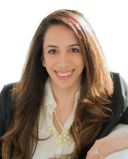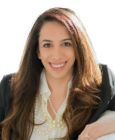Health
The Problem With “Experts” in the Age of Influencers
Following bloggers for fun can be fine. But following their medical expertise?
Posted June 26, 2019

Not too long ago, I came across the title, Girl, Wash Your Face by Rachel Hollis. Admittedly, I have not yet read this book (and have honestly not decided whether I will). But going through its Amazon reviews, I could not help but be struck by some of the critical responses. One naturally has to wonder what they could be for a book with over 10,000 reviews at an average of 4.6 stars. It was interesting to see readers’ perspectives and frustrations. They ranged from the author having a nanny and support staff that enabled her to gain so much success, to the fact that she was using her own life experiences to act as an expert on areas in which she had none. One reviewer worded it insightfully, writing that despite being a longtime fan of Hollis, she had several concerns including:
3. The dangerous, non-expert advice.
Hollis does not have a formal degree or certification of any kind, beyond a high school diploma. She is 100% unqualified to give advice in the areas of physical and mental health, relationships, trauma/recovery, and life management. Marrying the only guy you've ever dated and having kids doesn't make you a relationship expert. It makes you a wife and mother. Losing weight and exercising doesn't making you a trainer or nutritionist. It makes you a person who has eaten well and exercised to better health. And experiencing trauma and having a therapist does NOT make you a mental health professional. It makes you someone who has worked through their own issues.
This reviewer ultimately touches on the inspiration for this post: What truly makes someone an "expert”?
In graduate school one particularly staunch research professor admonished us from ever believing anyone was ever truly worthy of the status of “expert.” In his mind, the list would have been few and far in between. Freud was unlikely to make the cut because of his lack of scholarly literature. Nor would Maslow, despite ubiquitous cultural references to terms such as self-actualization and his hierarchy of needs. In fact, I couldn’t confidently point to anyone he would deem “expert”—maybe he’d use an impact number to determine this?
While we certainly need not be so excessively stringent as to who is considered an expert, commonly accepted professional guidelines are actually pretty conservative. The American Psychological Association (APA), for example, includes in its Ethics Code the importance of not overstating one’s competence and abilities in any given area. This means that when I am contacted by media to give an “expert opinion” on neuropsychological research, I decline. When the topic is more related to my background in working with adolescents and millennials, it’s more likely to be a go. The exact wording from the Ethics Code can be found here (bold italics added for emphasis):
5.04 Media Presentations
When psychologists provide public advice or comment via print, Internet, or other electronic transmission, they take precautions to ensure that statements (1) are based on their professional knowledge, training, or experience in accord with appropriate psychological literature and practice; (2) are otherwise consistent with this Ethics Code; and (3) do not indicate that a professional relationship has been established with the recipient. (See also Standard 2.04, Bases for Scientific and Professional Judgments.)
As such, even a Ph.D., which is often regarded as a sign of expert knowledge, is clearly (and rightly) noted to be have its limitations when it comes to expertise. Meanwhile, the volume of bloggers and influencers has exploded with the rise of Instagram advertising and marketing. Everyone and their brother is pushing products, talking about their lifelong issue with gluten or IBS, and giving you discount codes to purchase the remedy. While a select handful of these individuals actually bring in six-figure incomes simply from product pushing, one of the biggest dangers is how normalized it has become to treat non-experts as experts.
While case studies are used in medical sciences for very rare diseases and disorders, the reality is that countless individuals now treat their n (sample size) of 1 as “proof” that a treatment or regimen works. From beauty bloggers to high-school dropouts, life advice, fitness advice, and tips on how to cook and organize are regularly dosed out by individuals who have an interest but definitely lack expertise in these domains.
The problem with influencers as experts is that lines can get quickly blurred as they swear by strict vegan diets or going keto. Sometimes they push their monthly hundred-dollar Soul Cycle classes as the guaranteed way to get fit. The reality is that, whether these things work for them or not, each body is unique. Just because one person is gobbling down hundreds of grams of fat while the pounds keep sliding off doesn’t mean someone else won’t end up with health issues because of that very same diet. Some body types thrive on heavy weight lifting while for a more slight frame that same exercise could lead to adrenal fatigue or other concerns.
While learning from others can undoubtedly be an incredibly positive and prosocial event, it is imperative that individuals do their research and due diligence. Read books, not just bloggers. And even then, make sure the author is credible in that domain. Then read some more. Yes, it sounds like a lot of work, but when it comes to one’s body, enough caution cannot be exercised. It is one thing to take up a meditation regimen because someone said so. Unless there is a trauma history, it is unlikely for there to be major harm done. But when it comes to supplements, foods, oils, exercises, and skin care, be mindful of the advice you heed.
Even as psychologists who are taught to memorize and learn about the major psychiatric drugs, the rule is that we always refer to medical doctors for thorough discussions on side effects and efficacy. When patients ask therapists about psychotropic medications, we are required to tell clients that it is not our domain of expertise. And it’s true: I’ve never taken Organic Chemistry or Biochemistry. As such, it is not a giant leap to say that a college graduate with an English Literature degree may not be the best arbiter of how to live your best life.
The conclusion perhaps is to always wash your face, but perhaps even more important, remember to check your sources.




